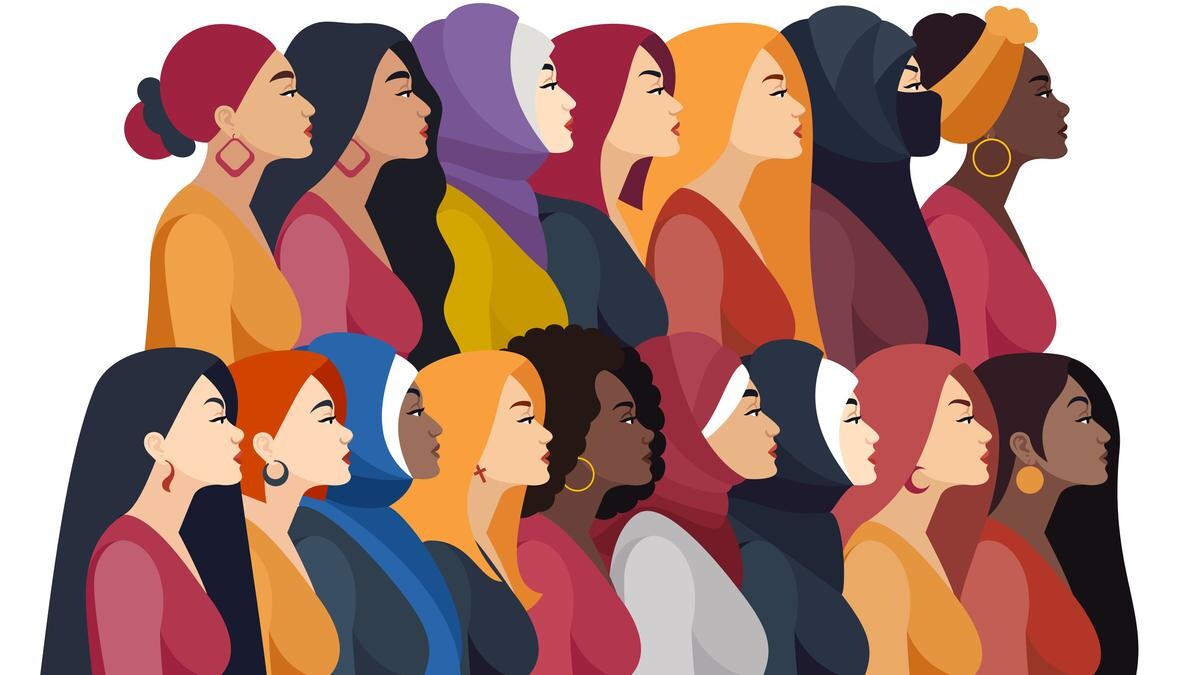
In the cultural arenas of India and Pakistan, the grappling between progressive feminist movements and customary conservatism continues to unfold. Documenting noteworthy steps towards gender equality while acknowledging the resistance faced, Maed in India unveils a compelling auditory narrative titled “Her Kajal Won’t Smudge,” a podcast echoing the tales and trials of South Asian women.
The current cinematic landscape in India recently showcased a blockbuster film starkly contrasted with feminist endeavors. The movie concludes with the lead, an ‘alpha male,’ making a bluntly offensive gesture that brazenly disregards any notion of gender respect. Meanwhile, across the border in Pakistan, the women’s rights-focused ‘Aurat March’ is met with biting criticism that seems to border on hysteria. These responses demonstrate that advocating gender equity in these regions is daunting and repetitive, akin to the mythological labors of Sisyphus. Nevertheless, the significance of these battles and their thorough documentation cannot be overstated. This is the essence captured by the podcast through the anecdotal and insightful tales it weaves.
“Her Kajal Won’t Smudge” is broadcast over a gripping six-episode series, where Shana—a Pakistani-American lawyer with a doctorate in economics—sits down with South Asian women from assorted sectors. Guests like Sheema Kermani, a seasoned Bharatnatyam dancer renowned for her presence in the music video for Coke Studio’s hit ‘Pasoori,’ to popular sex educator Leeza Mangaldas, comics Radhika Vaz and Sabah Bano Malik, illustrator Priyanka Paul, and satirist Mariam Shafqat Goraya grace the episodes. Each woman shares her singular rebellion against various facets of gender discrimination and how they’ve enhanced crucial dialogues including on social media platforms.
In a virtual interview, Shana shared the inspiration behind this endeavor, expressing her intrigue with women’s interactions within societal structures. She noted that diasporic experiences like hers differ from those who reside within South Asian countries. Shana admired how women she conversed with, notably comedians from India and Pakistan, adeptly translated their life experiences into comedy or satire, fueling her pursuit for such interaction with South Asian women.
These dialogues have prompted Shana to reflect deeply on the marginalization and discrimination faced by women like Priyanka Paul, who confronts online abuse that spans caste, gender, and body shaming. Similarly, Vaz and Malik illustrate the notorious reputation they’ve garnered from comedic takes on patriarchy, particularly provoking ire among hypersensitive, digitally vocal men.
Through these interviews, Shana highlights a bright side, crediting social media as a facilitative tool in enhancing discourse quality. She dissects the misconception that street protests are sporadic—emphasizing how social media has facilitated global feminist discourse, transitioning beyond Western-dictated narratives. Importantly, this expansive online engagement is credited for the rise in South Asian representation across media, from ‘Ms. Marvel’ and ‘Polite Society’ to Oscar-shortlisted ‘Joyland’ and web series ‘Made in Heaven.’
As a legal professional, Shana discusses the significant yet gradual advancements in gender violence legislation in both India and Pakistan, acknowledging the substantial impact legal activism and influencers have had in driving change. Despite the challenges in enforcing and adjudicating these laws, Shana’s optimism for future progress is palpable.
“Her Kajal Won’t Smudge” presents a rich, multidisciplinary tapestry of dialogue that covers a broad spectrum of women’s issues in South Asia over its inaugural season. The podcast comes highly recommended for those seeking to understand the ‘desi female experience’ more holistically, proving to be a valuable educational resource for both casual listeners and those invested in the cultural zeitgeist of South Asian feminism.










